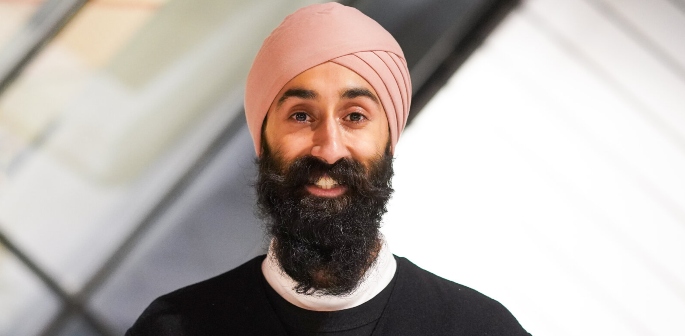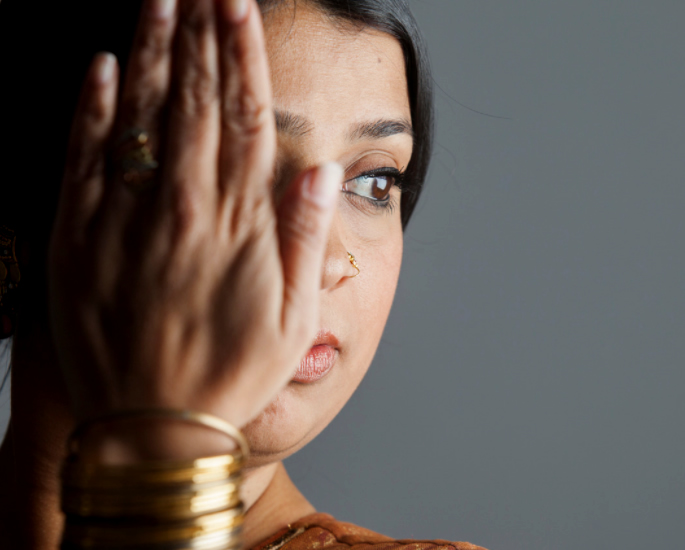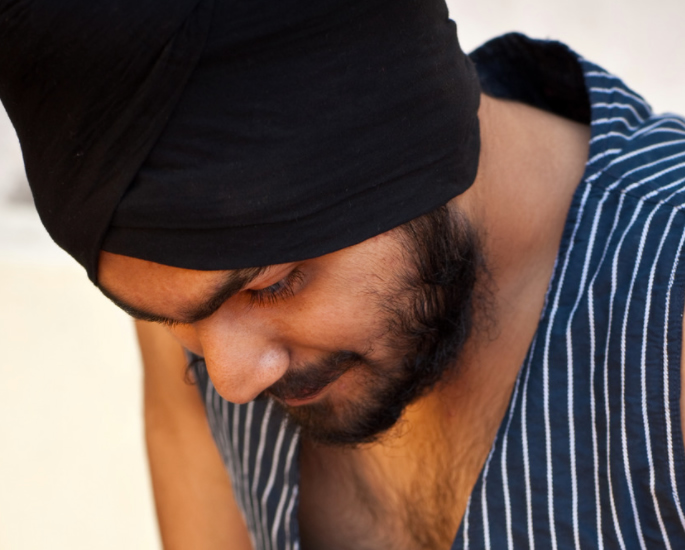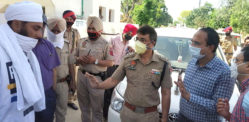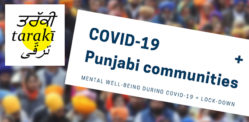"Women are a high-risk group for suicide attempts"
Mental health awareness is a challenge in every community. The initiative by the organisation Taraki is to work with Punjabi communities in the UK. With the aim to develop a much more targeted approach.
A 2012 study on the Punjabi diaspora in the UK found that 45% of British Indians living in the UK were Punjabis.
The study also reveals that Punjabis were the higher group from India to migrate to the UK in the 50s and 60s for socio-economic reasons post-partition.
Thus, leading to an exponential growth of Punjabi communities in the UK, as families settled and gave way to new generations of UK-born Punjabis.
This growth did not come without issues.
Problems like domestic abuse, alcoholism and financial struggles all contributed to many mental health issues within Punjabi families.
Accepting mental health as an ailment, especially, among Punjabi men has always been a challenge as it is perceived as a sign of weakness.
The stigma around mental health within Punjabi communities is no different from other South Asian communities in the UK. As a whole, it is poorly understood, especially, among older generations.
Therefore, barriers such as language, cultural thinking and giving mental health a lower priority compared to physical health all highlight the kind of challenges faced by Taraki.
Mental health issues are prevalent across all age groups in Punjabi communities and they need the support and help necessary to increase awareness and understanding.
With Taraki, which means ‘making progress’ in Punjabi, we wanted to find out more from the founder and director of the organisation, Shuranjeet Singh Takhar.
He spoke exclusively with DESIblitz about Taraki’s vision and aims for supporting Punjabi communities with mental health.
Tell us about the purpose of Taraki
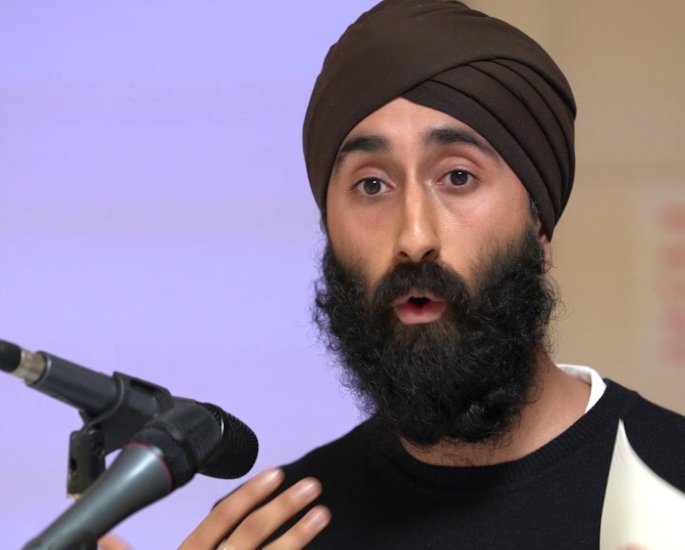
Taraki is a movement that works with Punjabi communities to reshape approaches to mental health.
I started Taraki in October 2017 after my own experiences of mental health difficulties whilst I was a student.
I experienced pretty debilitating social anxiety, moving away from home for university and failing to find my feet in my new city.
As well as this, I felt like a complete outsider compared to those around me and these feelings of isolation and loneliness really impacted my well-being.
At this time, I didn’t reach out to my parents or friends back home because I assumed that they wouldn’t understand.
I found refuge with my housemates and we were able to talk about our difficulties and create a space for us to heal. I realised that I was so lucky by having this space.
But I saw many within Punjabi communities who were experiencing mental health challenges but were unable to find support.
Therefore, I wanted to start Taraki because I was so lucky in my times of difficulty and I thought it was only fair that others had the same access to supportive spaces.
We started Taraki, which now has a team of fourteen volunteers, to focus on four areas in Punjabi communities: developing awareness, education, support and research around mental health.
Our vision is that everyone in Punjabi communities has access to spaces where they can comfortably discuss mental health and mental illness to best support themselves and each other.
Why do you feel the Punjabi community needs a targeted approach?
A targeted approach is needed in Punjabi communities to best understand the barriers to mental health discussion as well as their enablers, this will help to shape services that are effective.
I feel that many sections of our society stigmatise mental health and mental illness. However, the way these stigmas are manifested can be contextual depending on language and cultures.
I feel that stigma and understandings of mental health in Punjabi communities can manifest through fears about family status, ideas of honour, shame, all bound up within expectations of gender and sexuality amongst other things.
“In Punjabi communities, we also have unique ways of engaging with each other that can help us.”
We are a group of people who are often affiliated to a faith, we are people who look out for one another, and we are people who are distinctly resilient.
Considering all of these ideas is integral to understand how mental health and mental illness functions across Punjabi communities leading to, ideally, better and more tailored services to meet our diverse needs.
What kind of mental health issues are prominent?
Mental health difficulties and mental illnesses are so complex and wide-ranging, whilst across communities, their prominence can differ.
According to the Mental Health Foundation, mixed anxiety and depression are the most common mental disorders in Britain, with 7.8% of people meeting the criteria for diagnosis.
“Alongside this, 4-10% of people in England will experience depression in their lifetime.”
Within South Asian communities, research has shown that women are a high-risk group for suicide attempts.
How well is the acceptance of mental health among Punjabis?
Discussions around mental health and mental ill-health are slowly improving amongst Punjabis.
Fundamentally, we need to understand that everyone has mental well-being; whether we are in a mental state where we feel good, or bad, we all have mental health.
The issue usually comes when we talk about mental illness, which in itself is incredibly complex as there is a huge range of experiences within this.
Historically, we have dismissed those living with mental ill-health as being ‘pagal’ or that they are ‘possessed’ which have led to really negative views of people who are going through these difficulties.
So, in the past, our view of mental health and mental illness has been quite negative but I am hopeful that we are slowly improving in this way.
Are culture and language important for support to this community?
Culture is almost like a language in itself.
It is a way we understand and interact with the world around us. Cultures across groups can be similar, but they can also have marked differences.
For Punjabis in the UK, cultural understandings of family, shame, honour and gender roles can have an impact on how we view mental health and target support.
Language, too, is important as for native Punjabi speakers we need to communicate these topics in an easily understandable way, which is an incredibly hard task.
How well are the community reacting to Taraki?
The community are reacting really positively to Taraki.
We have been engaging a wide range of people across the UK and through our social media campaigns.
“We have worked with faith centres and we hope to continue this work moving forwards.”
There will, undoubtedly, be obstacles but we will meet them with conscientiousness and compassion to overcome them.
What are the biggest hurdles to overcome?
The biggest hurdles can be explaining the importance of mental health to someone who may refuse to engage.
It can be really frustrating when someone makes another feel alone and isolated by using stigmatising language or by making false generalisations.
If we are able to engage with each other in an empathetic way and see one another as human, it will go a long way to helping our mental health discussion as a community.
What is the ratio of Punjabi men vs. women with issues?
Generally, there is a lack of data in this area. However, I would say that men and women can experience complex difficulties related to their lives.
Sometimes people may say that women experience mental illness more, but that could just mean that men aren’t speaking about it when they do.
So, there’s a lot more digging to do before we can properly say anything definitive on this topic.
For the time being, let’s approach each person in a kind and warm manner to ensure that we are giving them the space to be heard.
Has it improved the situation for those who seek help?
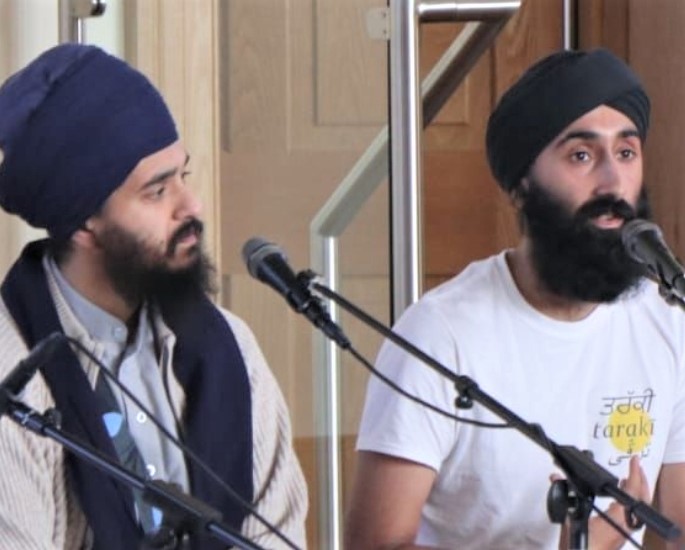
I think that seeking help can lead to improvements in your situation, especially if you find the help that works for you.
There are talking therapies, virtual therapies, medication, group therapies, creative therapies and lots of ways to engage yourself.
However, we will not necessarily find something that works straight away.
“As with everything, we need to be patient and persistent with how we seek help.”
As the general public, we can offer everyday help to people just by approaching them with compassion and avoiding language that makes us more alone and isolated.
How do you think the Punjabi lifestyle impacts mental health?
I think our current lifestyles can put different pressures on us, which can cause us various stresses and impact our mental health.
Within Punjabi culture, there is sometimes a distinct expectation to drink which can lead to situations where individuals feel pressured or develop alcohol dependency.
This brings forward a whole range of issues such as abuse which can cause further difficulties for individuals and those around them.
There can be huge ripple effects from these actions and it’s important that we look at these and try to each other with patience and compassion.
It is extremely important for an organisation like Taraki to focus on Punjabi communities and their needs around mental health.
It’s evident that this society of people in the UK do definitely need help and support from an understanding body, which can help them break the stigma.
Mental health issues are a problem for the UK as a whole.
However, the work by Taraki can at least try to tackle problems in a segment of its society that has contributed to the country in so many ways, from the past to the present.
With Taraki growing day by day, we will hopefully see an increase in mental health awareness within Punjabi families.
As well as provide people with confidence that there is an organisation catered to aid them in any way possible.
Find out more about Taraki and its incredible work here.




















































